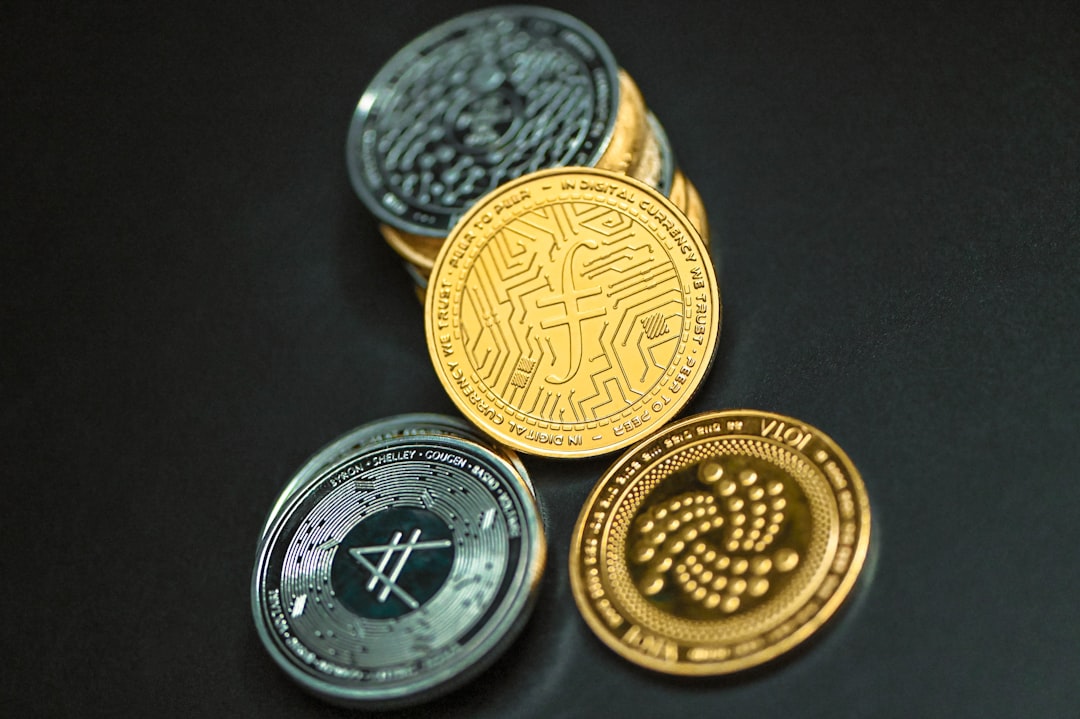
Hong Kong's Supply Chain Transformation! How Blockchain is reshaping the lifeblood of international trade?
Hong Kong, one of the busiest ports in the world, is the nerve center of international trade and finance. However, behind the wheel of goods, supply chain management has long faced an efficiency bottleneck:Cumbersome paperwork, decentralized tracking systems, high transaction costs, and difficulties in handling cross-border disputesThese pain points are being turned around by the use of an innovative technology - blockchain. These pain points are being turned around by the application of an innovative technology - blockchain.
The core advantage of blockchain lies in its "decentralized" and "tamper-proof" nature.This technology is not only the foundation of cryptocurrency, but also revolutionizes supply chain management. This technology is not only the basis for cryptocurrencies, but also revolutionizes supply chain management. Imagine: Instead of closed proprietary systems for all parties involved, from suppliers to shipping companies to import agents to customs authorities, the supply chain is now managed by a single, proprietary system.Share a decentralized database that is updated in real time and cannot be tampered with unilaterally..
What does this mean? In the current global cargo transportation process, the same data (e.g., cargo item, quantity, origin) needs to be entered and transmitted repeatedly across multiple participants' systems in different formats, which is time-consuming and error-prone.Blockchain technology can consolidate this information in a single, trusted digital recordAll steps are encrypted and recorded on the blockchain. Shippers upload their shipment data, shipping companies update their logistics status, and customs record their clearance results. All steps are encrypted and recorded on the blockchain, forming a complete and transparent "transaction history".
This transparency and traceability is the key to resolving complex supply chain disputes.The following are some of the reasons for this. When goods are delayed, damaged or subject to attribution disputes, the past relied on potentially contradictory paper documents or isolated data provided by all parties. Blockchain provides an immutable, time-stamped record recognized by all parties, dramatically simplifying the process of determining responsibility and effectively reducing the cost and time of handling cross-border disputes.
As an international financial and trade center, Hong Kong has a well-developed business-to-business (B2B) infrastructure, which provides excellent ground for blockchain integration. In factHKSAR Government has recognized blockchain as an important tool to enhance competitiveness. In the 2023 Policy Address, it is explicitly proposed to promote the "100-item Digital Government and Smart Cities Programme" from 2024 onwards, which includes the use of blockchain technology for the issuance and validation of a wide range of electronic licenses and certificates. This is not only an upgrade of government services, but also a demonstration of an efficient and forgery-proof technology for document authentication (e.g. certificates of origin, quarantine certificates) required in supply chain management.
Of even greater concern is the fact thatHong Kong has made a substantial breakthrough in the application of blockchain in the financial assets sectorIn February 2023, the Hong Kong SAR Government successfully offered the world's first government-issued tokenized green bonds worth HK$800 million. This initiative not only demonstrates the efficiency of blockchain in asset issuance - drastically shortening the traditional settlement cycle from T+5 (5 days after the trade date) to T+1 (1 day after the trade date) - but also paves the way for future applications in supply chain finance, trade finance and other segments. paving the way for future applications in supply chain finance, trade finance and other areas. Imagine the improvement in liquidity for enterprises if financial instruments such as accounts receivable and letters of credit along the supply chain can also be safely monetized and quickly settled.
The Financial Services Development Council (FSDC) has even pointed out the key points in its report "Unlocking the Potential of Blockchain: Enhancing the Development of Hong Kong's Financial Services Sector" (FSDC Paper No. 61):Blockchain technology combined with smart contracts can open up huge business opportunities in the B2B sector.These applications are the cornerstones of efficient supply chain operations, especially in facilitating data sharing, identity and credential verification. These applications are the cornerstones of efficient supply chain operations. The report further recommends that the government should take the lead in utilizing blockchain technology in public utilities, with real-world examples to encourage wider adoption by the industry.
Global market trends confirm this wave. The FinTech blockchain market is expected to surge from $1.4 billion in 2022 to more than $43 billion by 2030, with a staggering compound annual growth rate of more than 531 TP3 T. Much of this growth is being driven by the need for enterprises to improve the transparency and efficiency of their supply chains.Blockchain is the ultimate answer to the growing consumer demand for verification of product origin and authenticity..
The opportunity for Hong Kong lies in the deep integration of its mature international trade network and top-notch financial infrastructure with the innovative potential of blockchain.The supply chain management in Hong Kong will be more than just a "blockchain network". When every movement of goods, every signing of documents and every payment of money can be accomplished in a secure, transparent and efficient blockchain network, Hong Kong's supply chain management will not just be "smooth", but will move towards being truly "smart" and "trustworthy", further reinforcing its irreplaceable position as a global trade and financial hub. This blockchain-driven supply chain revolution has already started quietly in Hong Kong.
Disclaimer: The contents of this article are for informational purposes only and should not be construed as any form of promotion, investment advice, or invitation, solicitation or recommendation of any investment product.
The contents of this article have been reprinted.offensiveIf there is anything wrong, please contact us and we will remove it immediately, thank you.
Readers should make their own assessment and seek professional advice.





